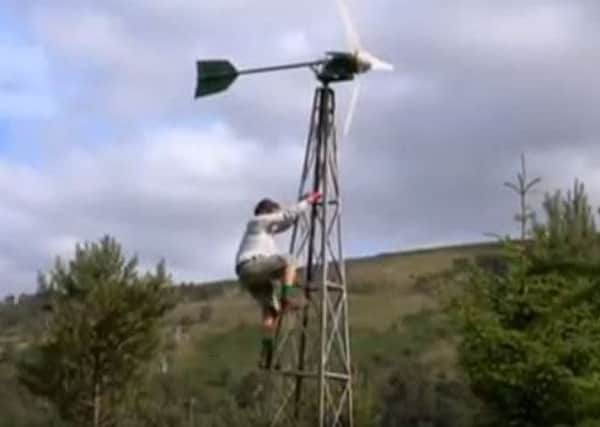Crofter fails in £500,000 pavement fall claim


Iain Pocock and his wife Sasha were on a visit to Inverness when he caught a foot on the raised edge of a slab and he fell with his left leg giving way leaving him in excruciating pain.
Mr Pocock found that the injury impacted on his ability to carry out tasks at the croft at Cougie, near Tomich, in Inverness-shire, where the family led a self-sufficient life.
Advertisement
Hide AdAdvertisement
Hide AdHe raised an action at the Court of Session in Edinburgh against Highland Council, suing for £500,000 compensation following the injury he sustained on February 9 in 2012.
The local authority, which denied liability, said that during 2012 and the following year Mr Pocock and his family were the subject of a BBC documentary: “Power to the Pococks: A year in the life of a crofting family.”
In its defences to the action it said: “The pursuer’s wife in particular, during the documentary, discusses the fact that they rely on own generator for power and that they cannot be linked to the National Grid other than at significant expense to their family.”
“There is reference to them being quoted the sum of up to pounds 230,000 for them to be connected and the pursuer’s wife says they do not have that money unless they ‘win the lottery’,” it was said.
During the action parts of the documentary, which was screened in October 2013, were played to Pocock.
Lord Clark said: “Excerpts of the documentary were played which showed the pursuer doing such things as using an axe and a chainsaw to cut firewood, carrying out animal husbandry tasks, carrying out maintenance of a wind turbine by climbing up a metal scaffold and in doing so being able to place weight on his left leg, driving a tractor, kneeling while milking, carrying a stockpot and sliding on a sheet of ice, spinning round a pole in a barn and working on a diesel generator.”
The judge said: “The pursuer explained that he was not filmed during periods when the knee was bad and that when he was carrying out some of the activities that had been filmed he was focused and aware of what he was doing, and was bracing his leg to avoid unexpected injury.”
Documentary director Stephen Bennett explained to the court that he would not switch on the camera and begin filming when Mr Pocock, 48, said he was in pain.
Advertisement
Hide AdAdvertisement
Hide AdLord Clark said in his judgement issued today that Mr Pocock, his wife and other relatives struck him as being honest witnesses and he had no hesitation in accepting them as credible and reliable.
The judge said: “It may be the case that the pursuer’s evidence to some degree over-emphasised the effects of the accident and that the BBC documentary supported the view that his injuries were not quite so severe as he had stated, but I regard any difference as being largely immaterial.”
“In relation to the documentary, I accept the evidence from the pursuer and Mr Bennett to the effect that there were points in time when filming could not take place because of the pursuer’s knee injury,” he said.
The judge said that in light of Mr Pocock’s testimony of symptoms of the knee locking during 2012 and supporting evidence he concluded he had suffered a medial meniscal tear in the accident.
In the action it was contended that there was a duty to repair a paving defect with a height difference greater than 20 mm within seven days or at most within 21 days.
The location of the accident in Baron Taylor Street was known to be prone to problems and was regularly inspected.
Lord Clark said he had concluded that Mr Pocock had failed to establish the key factual basis of his case _ that the defect at the date of its identification involved a height difference greater than 20 mm.
The judge added that Mr Pocock had not established that a roads authority of ordinary competence applying reasonable care would have taken the steps identified in his claim to correct the defect.